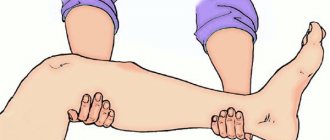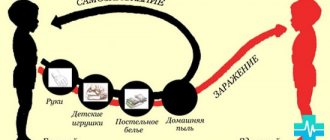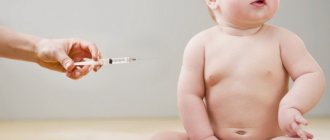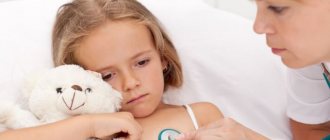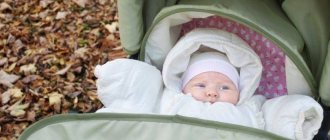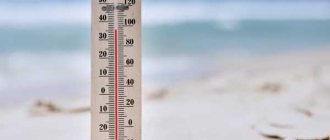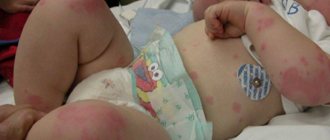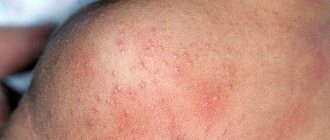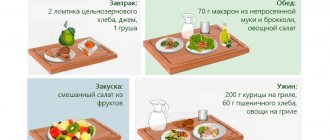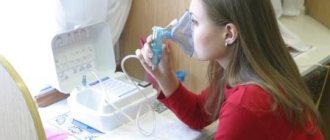The danger of infecting children with worms is much higher than it might seem at first glance. Parasitic worms, having settled in a child’s body, draw out vitamins and other beneficial substances, leaving at the same time toxins and harmful waste products. According to statistics, 6 out of 10 children have suffered from helminthiasis in one form or another. Worms are worms that parasitize the human body. Children are at increased risk. Little explorers strive to taste the world around them, communicate closely with domestic animals, and this despite the fact that the defense mechanism in children is not fully formed.
Causes of helminthiasis in children
There are many reasons for the occurrence of helminthiasis among children. Nematode eggs mature in the soil. In the warm season, children spend a lot of time outside: in the yard, at the dacha, in the forest and on the beach. There are many ways of infection with worms, among them: fecal-oral, direct contact with sand or soil, playing with contaminated objects and toys, eating insufficiently disinfected food, insect carriers, raw water, and pets play a special role. There are cases of infection through the air when the child is weakened by an illness, ARVI, for example.
The high risk of worms is due to the characteristics of the child’s body: insufficiently high acidity of the stomach and weak immunity.
Playing in the sandbox, in the garden, or in the vegetable garden facilitates the penetration of parasites into the body. Young children tend to put their hands and toys in their mouths. Older children often enjoy unwashed berries and fruits. Helminths can be found in drinking water. That is why it is recommended to give children boiled water to drink in the summer.
Cases of parasite infection from animals are not uncommon. Children communicate with pets much more closely than adults: they hug them, kiss them, and share food. The risk of catching worms from four-legged friends is especially high if they are allowed outside. They can carry worm eggs on their paws and fur.
Newborns are under close supervision of adults and the risk of infection with helminths in the first months of life is not high. But by the age of 6-7 months, babies begin to explore new territories, leaving the confines of the crib. 100% of toddlers and kindergarten age children suffer from helminthiasis. For younger schoolchildren, this figure decreases slightly. Children acquire hygiene skills, the nature of games changes, and their immunity is strengthened.
Until children learn to independently observe the rules of personal hygiene, adults must monitor their implementation.
Bibliography
- Centers for Disease Control and Prevention. Brucellosis. Parasites. Link
- Corbel MJ Parasitic diseases // World Health Organization. Link
- Young EJ Best matches for intestinal parasites // Clinical Infectious Diseases. — 1995. Vol. 21. - P. 283-290. Link
- Yushchuk N.D., Vengerov Yu.A. Infectious diseases: textbook. — 2nd edition. - M.: Medicine, 2003. - 544 p.
- Prevalence of parasitic diseases among the population, 2009 / Kokolova L. M., Reshetnikov A. D., Platonov T. A., Verkhovtseva L. A.
- Helminths of domestic carnivores of the Voronezh region, 2011 / Nikulin P. I., Romashov B. V.
An article for patients with a doctor-diagnosed disease. Does not replace a doctor's appointment and cannot be used for self-diagnosis.
The best stories from our readers
Topic: Parasites are to blame for all troubles!
From: Lyudmila S. ( [email protected] )
To: Administration Noparasites.ru
Not long ago my health condition worsened. I began to feel constant fatigue, headaches, laziness and some kind of endless apathy appeared. Problems also appeared with the gastrointestinal tract: bloating, diarrhea, pain and bad breath.
I thought it was because of the hard work and hoped that it would go away on its own. But every day I felt worse. The doctors couldn’t really say anything either. Everything seems to be normal, but I feel like my body is not healthy.
I decided to go to a private clinic. Here I was advised, in addition to general tests, to get tested for parasites. So in one of the tests they found parasites in me. According to doctors, these were worms, which 90% of people have and almost everyone is infected, to a greater or lesser extent.
I was prescribed a course of antiparasitic medications. But it didn’t give me any results. A week later, a friend sent me a link to an article where some parasitologist shared real tips on fighting parasites. This article literally saved my life. I followed all the advice that was there and after a couple of days I felt much better!
Digestion improved, headaches went away and the vital energy that I so lacked appeared. To be sure, I took the tests again and no parasites were found!
Anyone who wants to cleanse their body of parasites, no matter what types of these creatures live in you, read this article, I’m 100% sure it will help you! Go to article>>>
Still have questions? Ask them in our Anonymous group on VK
How to get rid of parasites in a week. The answer is here!
A reliable and effective remedy for combating worms. Removes all parasites in 21 days.
Go to website
Reviews
Read online
Symptoms that 100% indicate parasites! Take the Test.
How to rid your body of life-threatening parasites before it’s too late!
Read more
Website
To get a consultation
The doctor tells how to quickly get rid of parasites for adults and children!
A parasitologist explains what effective methods exist to combat helminths.
More details
Read completely
Comments
Search for cures for parasites
Other tests
We recommend reading
Where do parasites (worms, fungi, bacteria) live in the human body?
6 days ago 01/08/202112.01.2021ecoliv94
Where does the adult human roundworm live in the body?
6 days ago 01/08/202112.01.2021ecoliv94
Where do pinworms live in the human body, symptoms and treatment
6 days ago 01/08/202112.01.2021ecoliv94
How is the fitness of roundworm expressed in parasitism?
1 week ago 01/06/202113.01.2021ecoliv94
Signs of helminthiasis in children
Worms are the general name for parasitic worms. Children are most often susceptible to attacks from pinworms and roundworms. Penetrating into the intestines, the parasites take up residence and take away nutrients from the child carrier, leaving toxic waste in return. In this regard, children experience problems in the gastrointestinal tract: stool changes, most often it is constipation, but sometimes there is a tendency to diarrhea; flatulence; abdominal pain that is difficult to localize, it can be either fleeting or acute persistent; loss of appetite, nausea, belching, feeling of bitterness in the mouth.
Toxins poison the body and negatively affect the central nervous system, which is why convulsions, dizziness and headaches often appear; sleep disturbance; Grinding your teeth in your sleep. The child may show increased irritability and aggression, or, on the contrary, become lethargic, get tired quickly, and be capricious.
Skin rashes, swelling of the lower extremities, swollen lymph nodes, and muscle pain are possible.
A child’s body can react to the appearance of parasites with allergic symptoms: cough, neurodermatitis, rhinitis, bronchial asthma.
In most cases, itching and irritation occur in the anal area, and redness of the skin and mucous membranes is observed. Sometimes the irritation is so strong that the inflammatory process spreads to the external genital organs. Girls may even experience recurrent vulvovagenitis.
In rare cases, a more sustained increase in temperature is observed.
At the first manifestations of helminth infection, it is necessary to show the child to a doctor. A medical specialist will evaluate the clinical picture, prescribe the necessary laboratory tests and select the appropriate medication.
Worms are serious
Worms, once settled in a child’s body, can cause serious damage to health. Parasites can both aggravate an existing pathology and cause the initiation of a new disease. The vital activity of helminths increases the body's susceptibility to allergens. Dermatitis is activated, the course of bronchial asthma worsens, and susceptibility to allergens increases during the flowering period of plants.
If allergic reactions have not been observed before, the development of helminthic infestations can trigger the development of the disease. Allergies of this kind can be very difficult to cure, since ordinary antihistamines are powerless.
Worms negatively affect the functioning of the immune system, weakening it. The child more often suffers respiratory diseases, is susceptible to fungal infections of the skin and mucous membranes, and there is a high probability of developing pustular infections and caries. Preventive vaccinations can cause an inadequate reaction in the child’s body.
The presence of parasites in the gastrointestinal tract causes intestinal dysbiosis. With helminthic infestations, the number of E. coli and lactobacilli decreases with a simultaneous increase in coccal flora. As a result, the functioning of the gastrointestinal tract and pancreas is disrupted, and pathologies of the liver and biliary tract develop.
Establishing diagnosis
If symptoms characteristic of helminthic infestations occur, self-medication is dangerous. Prophylactic use of drugs is strictly prohibited. Deworming medications are toxic and should only be used as prescribed by a doctor.
Diagnosis of helminthiasis is a complex process. Parasitic worms have their own life cycle. They may not lay eggs for up to 6 months or may lay them in the intestinal lumen. If stool is collected at the wrong time, laboratory tests will not give results. This is one of the reasons why feces are submitted for research up to 3 times at short intervals. In addition to examining the stool, a scraping is taken for enterobiasis, and blood tests are performed. Even if all tests fail, this does not yet prove the absence of parasites in the intestines.
The doctor determines the presence of helminthiasis by a combination of indirect signs. However, it should be borne in mind that in some cases the disease is asymptomatic.
A qualified specialist knows how to make a diagnosis. Having identified the disease, the doctor prescribes competent treatment.
How to choose a medicine?
For helminthiasis, a parasitologist prescribes complex treatment as the most effective.
It is important to know that laboratory tests to identify parasites do not always show reliable results. If symptoms recur, it is recommended to do repeated studies. For parasites, doctors can prescribe medications for complex therapy:
- medications to enhance peristalsis;
- a drug aimed at destroying helminths;
- products that cleanse the body of dead worms.
The anthelmintic is classified according to its release form. They are produced in the form of tablets, drops, powder and suspension. When choosing a remedy for the prevention of worms in childhood, it is important to take into account the age group for the treatment of which a particular medication is allowed to be used. You should not self-medicate. Only the attending physician can prescribe the most effective treatment against parasites with minimal side effects.
Treatment of children for worms
Practice shows that complex treatment is 2-3 times more effective than taking single medications. A line of non-toxic or low-toxic drugs has been selected for the treatment of children. Along with taking anthelmintic drugs, it is recommended to use sorbents such as: Lactofiltrum, Enterosgel, Polyphepam, etc.
Decaris (levamisole) is the most popular anthelmintic drug. It effectively weakens parasites. After taking Decaris, Vermox (mebendazole) or Nemozol (albendazole) will help quickly kill the worms. The second anthelmintic is taken 3 days after taking the first tablet. The dosage and regimen of medication is determined by the attending physician or in accordance with the instructions reflected in the instructions for the drug.
Pyrantel is used in the treatment of enterobiasis. Its effectiveness is comparable to Vermox, and its toxicity does not exceed the safety of other anthelmintics.
Levamisole is taken once at night in the prescribed doses. In this case, the medicine does not have a negative effect on the body. However, in some cases it is used as an immunomodulator, many times exceeding the recommended dose. This type of therapy is used at the discretion of the attending physician.
Mebendazole belongs to a family of non-absorbable drugs. The product acts against helminths with high selectivity. If there are no parasites in the intestines, it does not interact with anything and comes out unchanged.
Nemozole (albendazole) has been used in the fight against parasites for about 30 years. This is the most popular anthelmintic drug in the world. Three decades is a good indicator. During this time, its qualities have been repeatedly confirmed: effectiveness and low toxicity.
Doctors often use other drugs to remove worms in children: Piperazine, Vormil, Helmintox, Nemotsid.
What to give to children to prevent worms?
Products for children under 2 years old
Prevention of worms in a 2-year-old child differs from the same procedure at an older age. Therapeutic and preventive measures for worms in children under 2 years of age should be carried out with the drug "Pyrantel". This product can be used from six months of age. “Nemotsid”, “Helmintox” and “Kombantrin” have a similar therapeutic effect. "Pyrantel" can be used not only for the treatment of parasites, but also as a prophylaxis against worms in children over one year of age. These tablets should be taken 1 time and after 20 days the dose should be repeated. During therapy, bedding should be changed 2 times a day; a new set should be thoroughly boiled, rinsed and ironed. Side effects of using Pirantel include pain in the abdominal area, loss of appetite, allergic reactions on the skin and sleep disturbances.
For children under 2 years of age, anthelmintic drugs are prescribed with caution and under the strict supervision of a doctor.
For children under 2 years of age, other drugs for helminths can be prescribed, but this should be strictly under the supervision of the attending physician and accompanied by monitoring of the general condition of the baby. You cannot engage in self-medication and self-prevention in children. All anthelmintic drugs are highly toxic and can harm the baby’s fragile body.
Medicines for children over 2 years old
When choosing medications for children over 2 years of age, you should consult a doctor. The choice of anthelmintic medications in this age category is extensive with different mechanisms of action on the child’s body. Such means include:
- Mebendazole is a broad-spectrum drug that can destroy various parasites. The release form is in the form of a suspension and tablets. Similar drugs are “Vermox”, “Termox”, “Vormin”, “Mebex”, “Vermakar”.
- “Albendazole” - the use of this drug is prescribed, in addition to the presence of general helminthic infestations, also in cases of larval migrations under the skin. Due to its potent characteristics, the product has strong side effects. Taking Albendazole should be under the strict supervision of a doctor and taking into account compliance with the instructions for the drug.
- "Dekaris" is prescribed to children in the fight against various types of worms. The drug is available in tablet form. Taking "Dekaris" is justified for ascariasis, hookworm and necatoriasis.
Features of removing worms in children
Dying during treatment, the parasites poison the little patient’s body with decay products. The child may complain of nausea and dizziness, abdominal pain. Signs of intoxication include diarrhea, skin rashes such as urticaria, and in rare cases, fever.
Sorbents help relieve unpleasant symptoms. Often, without waiting for unpleasant sensations to appear, Enterosgel or Lactofiltrum are prescribed in advance.
The doctor’s task is to explain to parents the peculiarities of dealing with worms and possible side effects, the mechanism of their manifestation.
In some cases, it is permissible to carry out preventive deworming. For example, if in a kindergarten group or other children's group there is an unfavorable epidemiological situation, and about 2/3 of the children are affected by worms. In such cases, it is advisable to undergo a course of treatment, even if laboratory tests show good results.
Folk remedies for worms
There are many folk recipes for removing worms. For example, there is an opinion that worms do not like garlic, onions and are afraid of raw pumpkin seeds. These products are good for health, but are not always effective against intestinal parasites.
For example, it has been experimentally proven that pumpkin seeds can actually have a negative effect on helminths. The efficiency factor is 10%, and you need to eat 300 g on an empty stomach. This method is unlikely to be suitable for a child.
No worm reactions were detected to onions and garlic. Recipes for douching with garlic are offered. Under no circumstances should this be done. Parasites are unlikely to respond to the proposed method, and the child’s mucous membrane will suffer greatly.
Wormwood tea has a pronounced bitter taste. It is unlikely that children will agree to drink it.
In any case, before putting into practice the recipes of traditional healers, you should consult a parasitologist or pediatrician. Folk remedies can be used as an auxiliary method of treatment, and deworming can be carried out with the help of medications.
Prevention
Preventative measures can significantly reduce the risk of parasites in children. While the child is so small that he cannot care for himself, adults must look after him. And older children need to be taught hygiene skills.
You should wash your hands with soap before eating and after using the toilet, as well as after playing with sand or earth, or interacting with animals.
Vegetables, berries and fruits should be washed with boiled water before consumption.
Indoor toys are washed weekly in a warm soapy solution, and the floor is treated with special detergents.
If one of the family members shows indirect signs of helminthiasis, the bed linen and underwear of all family members should be boiled or machine washed at 90°C, and also ironed with a hot iron on both sides.
Recommendations for prevention
If, nevertheless, infection with parasites occurs or characteristic symptoms are observed, then therapeutic measures should be resorted to, and preventive measures are needed to avoid reinfection and infestation of loved ones. The main recommendations for the prevention of parasites in children include:
- All family members should take anthelmintic medications;
- To avoid side effects, sorbents should be taken, but they should be taken one day after taking the anthelmintic medication.
But the main recommendation in carrying out preventive measures is a preliminary consultation with a specialist (this especially applies to parents of children under 2 years of age). Parents should not engage in self-diagnosis and prescribing prophylactic medications. Such actions can not only aggravate the parasite infection, but also cause significant harm to the child’s body.
